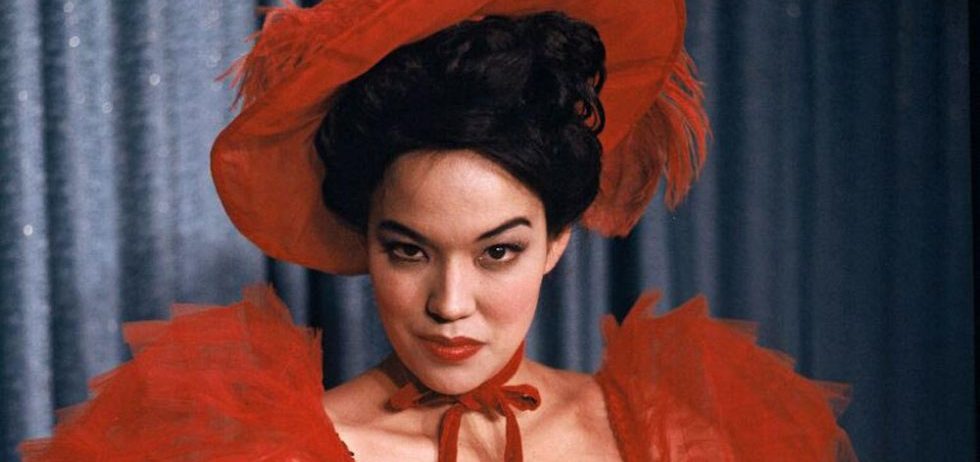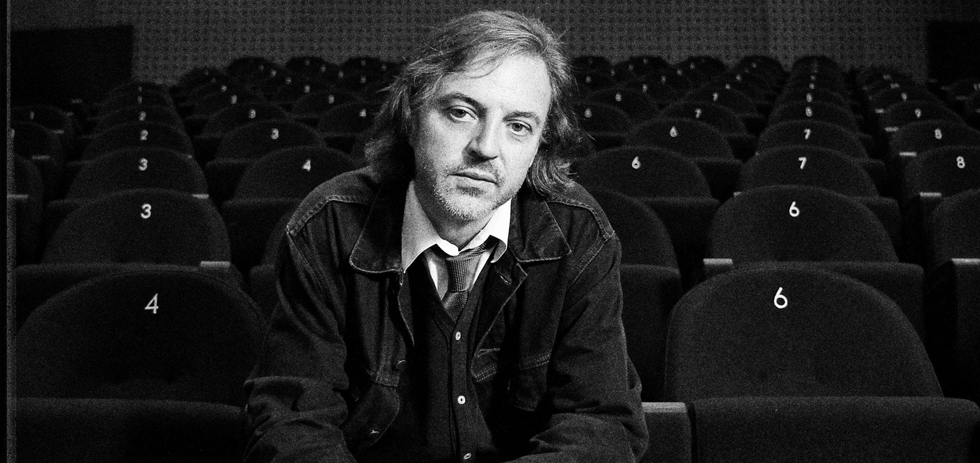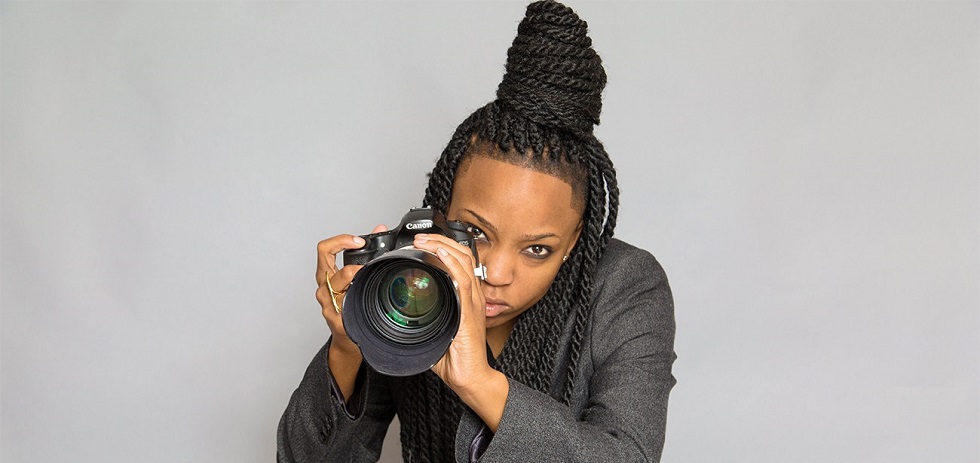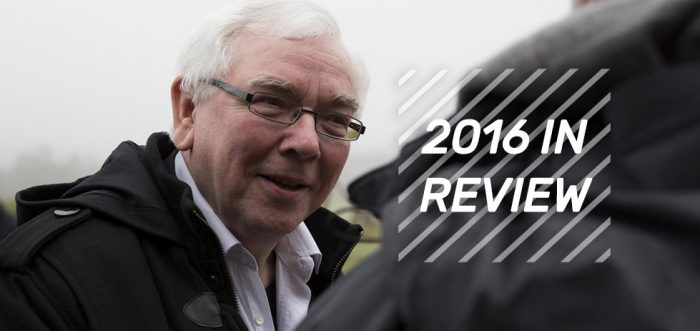Interview pieces are often what we are most proud of each year here at 4:3, and in 2016 our specific focus on lengthy discussions with creators paid off. This year we tallied 53 interviews with filmmakers from 13 local and international film festivals. We have featured 20 of those interviews below, covering a wide array of filmmaking practices and nationalities. You can read all of our interviews from this year here.
Sunset Song director Terence Davies, interviewed by Jaymes Durante
“Well I don’t go to the cinema anymore. I can’t suspend my disbelief. Occasionally you see something where you think, “Ah, this is a proper film.” Like Foxcatcher, that is a proper film. Wonderfully written, wonderfully performed and wonderfully directed. But that is rare. Most of the time you think, after the first two minutes, “Oh God, another ninety-eight to get through.””
The Fits director Anna Rose Holmer, interviewed by Eloise Ross
“I always kind of looked at a lot of early feminist experimental filmmakers that I admired, like Maya Deren or Shirley Clarke, who are also choreographers and dancers themselves, and looking back I see this long history with patterns and movement based cinema.”
American film critic Jonathan Rosenbaum, interviewed by Jessica Ellicott
“I remember going to see Mr. Hulot’s Holiday for the first time in London, and everybody was laughing and I didn’t understand what they were laughing at. I thought, “What’s funny? I don’t get it.” I think there’s a very interesting dynamic with a lot of comic people. I think people have irrational responses that they don’t know how to theorise exactly.”
Operation Avalanche director Matt Johnson, interviewed by Conor Bateman
“In Canada, the advice I give students or people who want to become filmmakers is “do not put faith in the short film system, that system leads to rack and ruin”. I’ve seen many filmmakers from my generation spend, you know, $50 to $100 to $150,000 on a short film that is twenty minutes long, that is impressive, but a) there is no marketplace for short filmmaking, and b) it’s not the ’90s anymore, where you can then take the next step through your national funding body based on a short film that you made. That support structure just isn’t there anymore, and so I’m encouraging them to take whatever budget they were going to spend on a short and figure out how to turn that into a feature budget, because that makes all the difference.”

The Love Witch director Anna Biller, interviewed by Alexandra Heller-Nicholas
“So many critics want to see my work as a pastiche of films that men have created. When they do that, they deny the fact that I am creating my own world, something completely original. Women are so often thought of as being unable to make meaning. So they are allowed to copy what men make—to make a “pastiche” out of what men have created—but not to create original work. My work comes from a place of being female, and rewrites film genres from that place.”
Indian filmmaker Anurag Kashyap, roundtable discussion edited by Virat Nehru
“Feel good films don’t make the world a better place. They just don’t make the world a better place. They just make you feel good about yourself. It’s like jab aap kisi beggar ko paisa dete ho na, you are not changing their life, you are feeling good ki maine paisa diya [It’s like when you give out money to a beggar, you do it to make yourself feel better rather than with the motivation to change their life]. Feel good films do that. They give you a false notion of your own greatness.”
Wet Woman in the Wind director Akihiko Shiota, interviewed by Jeremy Elphick
“There was a famous ceramic artist in Japan and when he makes a plate or any ceramic object, he takes three seconds to design it. One journalist interrogated him on it and complained, saying, “If it’s a work that takes so little time to make, why are you selling it for such a high price? You should sell it for cheaper.” The ceramic artist responded, “This work is not made in three seconds. It has taken 20 years of research and effort, plus the three seconds. So it was a work made in twenty years and three seconds. That’s how you should see this ceramic object.” Similarly, I also feel that my film has taken twenty years of research and seven days to write. It has taken twenty years of research and seven days to shoot.”
The Red Turtle director Michaël Dudok de Wit, interviewed by Dominic Barlow
“Takahata made a film that includes haikus, My Neighbours the Yamadas. We can’t make films like that. No-one can. It’s impossible. Haikus are too pure, too quiet to put into films, yet he did that and it worked for me and I thought “if someone can do that, that kind of support, I want that sensitivity”.”

Machine Gun or Typewriter director Travis Wilkerson, interviewed by Conor Bateman
“My sense over and over again is that the political dynamics that are unfolding in the world that indicate the US is losing its pre-eminence is being reflected culturally as well. I’m not saying I’m magically resisting that, by the way, I don’t mean that at all. I do feel, though, that there’s something, there’s a cautiousness and a withdrawal and a kind of closed-minded quality that I’m encountering right now in the avant-garde world that I haven’t in twenty years.”
Kate Plays Christine actor/subject Kate Lyn Sheil and director Robert Greene, interviewed by Jessica Ellicott
“When someone kills themselves you are desperate to understand it, because it goes against every instinctual thing we have in our body that says survive at all costs. And that need to tell a story or the need to make a film, documentary, actor-driven film, however you want to describe it, relates to that need to narrativise this thing. And so that’s the element of questioning for me.”
Godless director Ralitza Petrova, interviewed by Jeremy Elphick
“If you’re afraid of being there as an artist, of the idea and of what you want to explore, if it’s connected to fear you should go there, and you shouldn’t choose something you’re not afraid of. I really relate to that because in the overcoming of that fear you’ll discover it’s incredible. It’s a gold mine. I approach film projects in that way.”
Experimental filmmaker Michael Robinson, interviewed by Luke Goodsell
“I try to treat all of media history with a kind of equivalence—nothing is really above anything else—such that everything from Classic Hollywood to YouTube vlogging can be experienced as potentially profound or stupid; usually both. Unraveling that notion of equivalence across a range of materials feels exciting to me.”

The Same Difference director Nneka Onuorah, interviewed by Matilda Surtees
“On the outside people see me as a lesbian, then they see me as a filmmaker, and so when you have to go try and sell this film to networks and they’re like, ‘why should we care about the African American lesbian community? Why would people want to watch this?’ And it’s like, you’re talking to a lesbian who’s African American. So it becomes activism. It started off as a film, but now I feel the need to fight every day to prove that our voices are viable, just like everyone else’s; that our stories are important; and that there’s so many different types of women in the spectrum that we shouldn’t be boxed in as the minority lesbians.”
Fear Itself director Charlie Lyne, interviewed by Conor Bateman
“The whole intention was to create something that felt human in that it had an ability to be analytical at times and at other times emotional and at other times nostalgic and go through a range of registers just as we all do in conversation. Which isn’t to say you don’t have to be quite careful about how you balance those so that it doesn’t come across as someone just wildly skittering through different mindsets.”
The Devil’s Candy director Sean Byrne, interviewed by Tiernan Morrison
“I think that’s part of what filmmakers try to do: recapture that feeling of loving stories and being lost in them; that feeling of being a child again that first time you saw a film that terrified you—just trying to recapture that feeling.”
By the Time It Gets Dark director Anocha Suwichakornpong, interviewed by Jeremy Elphick
“I still remember the first time I watched Close-Up, on VHS, on a very bad copy of VHS in New York on a TV screen, where I was by myself in the living room. It was a sunny afternoon, I was home alone in my apartment, and I had not expected what it … I had no expectations. I didn’t know what it was going to be about. I had not read anything about the film, and I think actually it was the turning point in the way I view cinema and how it has the power to transform, at least for me. I don’t know if I can change anything in society, but at least for me, it has such an impact on me that I felt, “okay, this is really something that I could give myself. I surrender.”

Comedian and actor Gregg Turkington, interviewed by Ian Barr
“When we were driving around looking at locations, I said to him “this is the area where they shot those opening scenes of Five Easy Pieces”. And the next thing you know, he had written it into the script as this preposterous tour. Although I think the guy we got [to play the tour guide] had actually given similar tours in the area, for real, but Rick had coached him to study up on Five Easy Pieces, and work on a Nicholson impersonation for the scene.”
IMAX filmmaker Stephen Low, interviewed by Conor Bateman
“Modern cinema is all about hyper-cutting and even IMAX – Hollywood guys who do IMAX, they cut too fast and it’s annoying. You have to like the old sort-of Lawrence of Arabia style where the shots are allowed to live and breathe and evolve. You can’t always do that but if you’ve got a good helicopter crew and you time things well enough there’s some shots in there where it evolves as you’re going.”
Spear director Stephen Page, interviewed by Imogen Gardam
“I always feel like I’ve been around great optimistic leaders, even if they’re visual artists, filmmakers, or my black peers that have been black activists but at the same time they’re wanting this sense of hope. I think a lot of my black peers that work in their lifetime professionally are caretakers, are asserting the social strata of their cultural issues – I think that’s just great.”
The Royal Road director Jenni Olson, interviewed by Kate Jinx
“I am always trying to compose the landscape in a way where I crop out the contemporary: I try to eliminate as much as possible any modern parking signs or billboards or other indicators of the stressful elements of the landscape that I find so distracting. Sometimes when I see an empty wall it brings tears to my eyes — it evokes to me a calmer time. In my shots I want to remove the aggressive manifestations of capitalism that accost us so relentlessly and demand our attention everywhere we turn.”
You can read the rest of our Year in Review coverage here.
